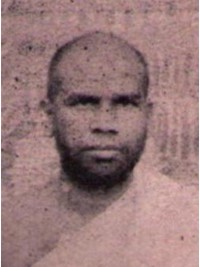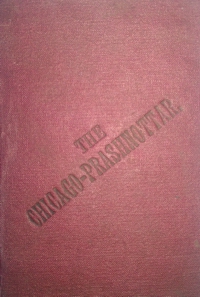21. Question:
This universe is like the show of a juggler and God acts like a juggler. By the creation of this universe God simply amuses Himself by His tricks. There are no such things as heaven, hell, virtue and sin.
Answer:
If God has created the world simply for His amusement, the results thereof ought to be simply like the effects of a juggler's performance. But in this world there are men who are sick, leprous, grief-stricken, penniless, infirm and extremely wretched wallowing in the depths of squalor and misery. The very sight of these persons evokes our compassion and excites our horripilation. Does not the sight of these miserable creatures move God with pity? If God is not moved with pity, He cannot be God. The performer of a trick is like a foolish child full of passion and animosity. If He is affected by passion and hatred He is full of all defects. When He is full of all defects He cannot be God. He can only be a worldly man. He who has passion and hatred cannot be omniscient and He who is not omniscient can never be called God.
22. Question:
God rewards or punishes men according to their actions therefore He is not to blame. As one soweth so does one reap.
Answer:
Your statement proves that the world is beginningless and God is not its creator. Bravo! You have undermined your own position yourself. You are coming to the position that whatever condition the living beings have in this life, are the results of their deeds in the previous life and what they were in the previous life, was the result of their actions in the one preceding it. In this way the chain goes back ad-infinitnm. This argument proves that the world is beginningless and that God is not its creator.
23. Question:
I believe only in one supreme Brahma who is an ever existing reality
Answer:
If there is only one Supreme Brahma of ever-existing reality then does it not follow from this that all these variegated phenomena such as pine tree, mango tree, sugar cane, palm tree &c &c are unreal?
24. Question:
All this phenomenon is unreal. All that appears is unreal. Nothing more real than the appearance of silver in a mother of pearls (fish, shell). There is only one Supreme Brahma who is perpetually real.
Answer:
Your statement does not point to your keen intelligence. There are three kinds of unrealities. One that is substantially untrue, the other which appears different from what it really is and the third which is indescribable unreality. Which of these unrealities do you believe in?
25. Question:
I do not believe in the first two kinds of unrealities, I believe in the third kind of unreality which is indescribable. The phenomena are indescribably unreal.
Answer:
Please let me know first what you mean by the word indescribable. (1) Does it mean that the word does not denote any object? (2) Does it mean that the object which the word denotes has no existence?
The first position is not worth considering seriously because it is evidently proved that such things as trees &c do exist. As regards the 2nd position it has to be ascertained whether the knowledge of the object or the object itself which the word denotes does not exist. The first case is wrong because the knowledge of such objects as pine tree, mango tree, palm tree &c &c, is possessed by men. As regards the existence or non-existence of the object itself it has again to be ascertained whether the positive or negative existence is meant. If you say that there is no positive existence of things and yet they appear, you will be driven on to the fallacy of Perverse Knowledge and this fallacy is held highly objectionable by those who believe in Advaitism. If you say that objects are devoid of non-existence, then you come to their having a positive existence which involves the canon of Real Existence of phenomena.
If you believe in Advaitism and also accept the statement involved in the above dogma of real existence you are directly against Advaitism which in that case can never be established.
 Shrimat Vijyasandsuri
Shrimat Vijyasandsuri
